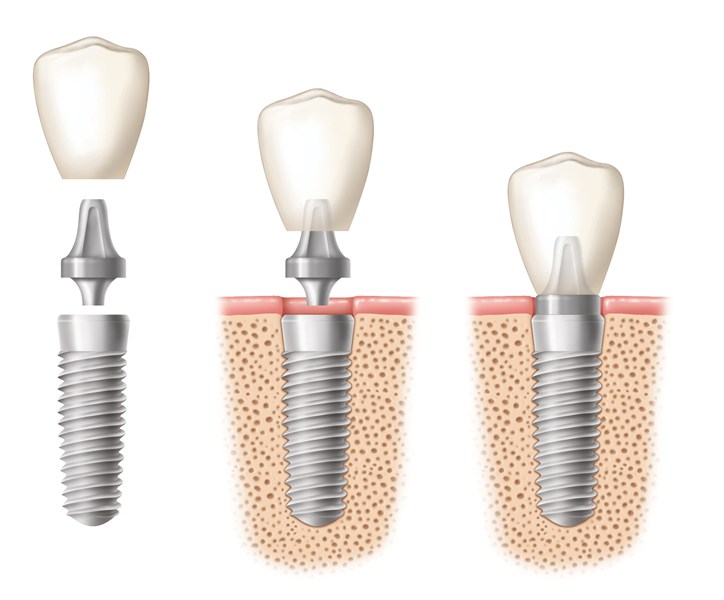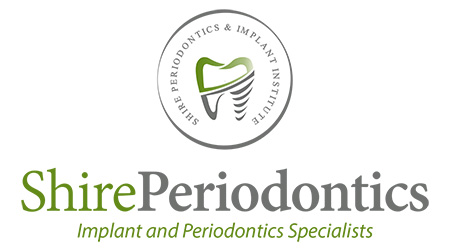Overview:
In Australia alone, there are over 50 different implant brands available.
They are usually made of pure titanium with different surface and design characteristics. These brands differ in their bioactivity and their macro- and micro-design and surface characteristics. Therefore, their final and long-term stability and reliability can vary when placed in the jawbone. Worldwide, there are only a few implant brands that have reported their success rate in long-term clinical research.
At Shire Periodontics and Implant Institute, only implant brands with long-term clinical success rates are used.
Dental Implant complex:
A Dental implant complex has three parts: Root, Neck and Crown

The Root:
- is a bioactive titanium rod (cylindrical or conical shape) that is surgically placed in the jawbone, replacing the root of the missing tooth.
- After placement, as the tissue heals, the bone grows and gets fused with the titanium rod (Osseo-integration).
- Once integration has occurred, the rod will be strong enough to support the restoration on top of it.
- The parts that provide the junction between the crown and the titanium rod.
- Usually a temporary abutment is placed at the time of implant placement.
- Sometimes, due to a clinical reason, this abutment is placed later in time and the implant is submerged in the bone during its integration with bone.
Similar to a tooth cap, the crown is the part that sits and is fixed on the abutment and provides the biting and chewing function.
Therefore, the titanium rod (root: dental implant) is the infrastructure for your dental implant complex. The implant should always be placed in its correct 3-D position in the jaw. This means that there should be enough bone thickness around the correctly planned 3-D location of the implant.

